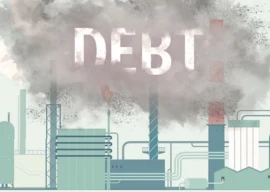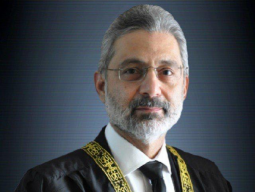
China has stepped up its diplomatic efforts to put the Beijing-Brussels relationship back on track. In his speech at the Munich Security Conference, Chinese Foreign Minister Wang Yi told the gathering of 180 leaders and defence chiefs that China will be a “force for stability” in the world and warned the West of making “historical mistake” under the aegis of de-risking, a coordinated transatlantic effort to prevent overreliance on China.
Tasked with the responsibility of mending the China-European Union ties, Wang visited Spain and announced lifting the ban on Spanish beef. Later on, he held discussions with French President Emmanuel Macron and solicited his support to stabilise the Beijing-Brussels relationship. Trade remained France’s key area of interest.
European leaders too are looking to engage China. While Wang’s Spanish counterpart hailed his announcement as “extraordinarily positive” over its potential to calm angst of the farmers, protesting against and seeing the EU environment and other policies as a financial burden, Spain’s Prime Minister Pedro Sanchez described China as a “fundamental partner” in the fight against climate change and for global peace and stability.
Paris is Beijing’s one of the most important partners in the EU. France was the first major Western country that formally recognised China in 1964. A red carpet welcome during Macron’s China visit by Chinese President Xi Jinping last year demonstrated France’s role in countering the US. The trick worked as on his way back home, Macron EU support to reduce dependency on America, underscored his vision of strategic autonomy and questioned whether it was in the bloc’s interest to fuel the Taiwan crisis.
Macron-Xi telephone conversation in November as Beijing faced a Paris-sponsored anti-subsidy investigation into Chinese electrical vehicles (though French officials insisted it was Ursula von der Leyen’s call and didn’t intend to hamstring the German auto industry)and Wang’s commitment, ahead of his departure to Europe, that China will continue to “expand the import of high quality products and services” attempted to curry favour with the French president on the China-EU relationship.
As China and France commemorate the 60th anniversary of the establishment of their diplomatic relations, celebration of 2024 as the Franco-Chinese Year of Cultural Tourism; an agreement to further strengthen cooperation on areas including climate change, clean energy and agriculture; consensus on contributing to peace; and Xi’s potential trip to France signal Paris’ willingness to put a floor under the China-EU relations.
With Biden administration’s protectionist measures such as the Inflation Reduction Act, designed to divert European investment to the Americas, serving the US own rather than shared interests, the fear of Donald Trump’s return to the White House is forcing the EU to reconsider its approach toward China — a diplomatic win for Beijing that has long been urging Brussels to continue dialogue while maintaining differences.
During his recent trip to China, Norwegian Foreign Minister Espen Barth Eide raised the human rights issue yet also held talks with Wang on trade, climate change, wars in Ukraine and the Middle East and how to strengthen the international institutions. Resumption of strategic dialogue between China and Switzerland and review of economic, financial and scientific cooperation further indicate that the European countries are bracing for Trump by making diplomatic overtures to Beijing.
China is willing to work with the EU to promote steady progress in the China-EU relations in 2024, Xi told Belgium Prime Minister Alexander De Croo who was on a state visit to Beijing in January. De Croo too hoped to start a “new era of Belgian-Chinese engagement” based on people-to-people ties, diplomatic partnerships and mutual prosperity, seeing the moment as a “timely opportunity” to engage Beijing in a tense geopolitical and economic environment and acknowledging that China and EU remain “important partners” in tackling many global challenges.
Factors such as greater trade restrictions, a trend set by the US and practised freely by all, could sharply reduce the global economic output by 7% or about $7.4 trillion over the long term — reversing economic integration and undermining cooperation to protect against existing global challenges and new shocks — warned IMF Managing Director Kristalina Georgieva last year.
As the UN trade body estimates, the global trade in goods in 2023 may contract by 5% or almost $2 trillion over geopolitical trends, Georgieva’s prediction is within the realm of possibility. With the multilateral trading system threatening to collapse and the specter of a new cold war not going away, Trumpomania is riding the European nerves.
The US has been a dominant global economic and technology power. The irony is that China, after showing staggering economic growth rates for years, is now projected to have overtaken America in 53 out of 64 critical and emerging technologies. While the US-led international economic order since 1945 helped bring an unprecedented era of growth, China is predicted to be the top growth source for the world over the next five years.
Confronted by an avalanche of economic and security challenges, Brussels is anticipating its crises to aggravate once Trump comes back and drives it to despair. The European countries are adapting to this looming reality and have increased engagement with Beijing.
Published in The Express Tribune, March 17th, 2024.
Like Opinion & Editorial on Facebook, follow @ETOpEd on Twitter to receive all updates on all our daily pieces.


























1715843823-0/WhatsApp-Image-2024-05-16-at-12-14-16-(1)1715843823-0-270x192.webp)





COMMENTS
Comments are moderated and generally will be posted if they are on-topic and not abusive.
For more information, please see our Comments FAQ